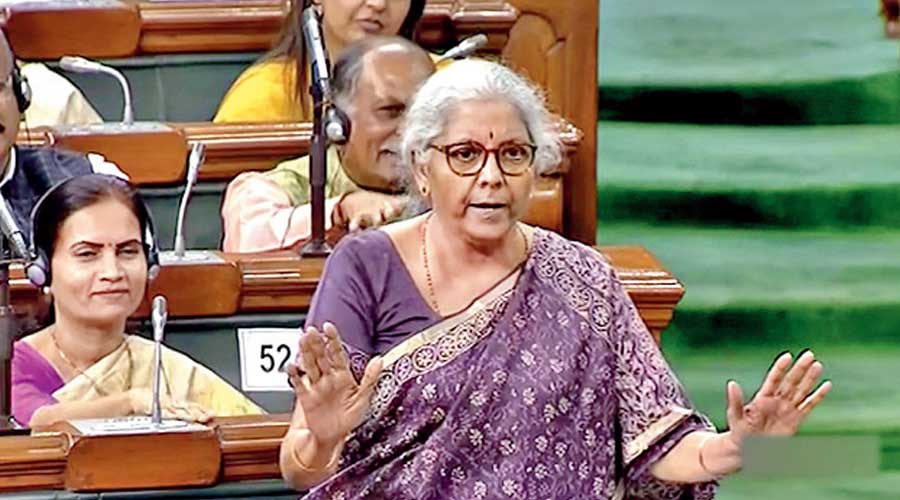The Lok Sabha on Friday passed the Finance Bill by voice vote completing the budgetary exercise for the 2022-23 fiscal.
The Finance Bill was approved by the Lower House after accepting 39 official amendments moved by finance minister Nirmala Sitharaman and rejecting the amendments proposed by the Opposition.
Replying to a discussion on the bill, Sitharaman said India was probably the only country that did not resort to new taxes to fund the recovery of the economy from the pandemic.
She said that according to an OECD report, as many as 32 countries have increased the tax rates after the pandemic.
“Instead, we put more money where multiplier effect would be maximum,” she said while referring to the Budget's focus on raising capital expenditure.
The budget raised capex 35.4 per cent to Rs 7.5 lakh crore to continue the public investment-led recovery of the pandemic-battered economy.
She said the reduction in corporate tax has “helped the economy, government and companies, and we are seeing the progress”.
She said Rs 7.3 lakh crore has been collected as corporate tax this fiscal. The number of taxpayers has increased to 9.1 crore from 5 crore a few years back, she said, adding the government is taking steps to widen the tax base and the faceless assessment has been received well by the people.
Among the amendments were the one on taxing crypto currencies. Mining cost for cryptos will not be treated as the cost of acquisition for the purpose of deduction.
Besides, investors cannot set off a loss from the sale of a crypto asset against gain from another asset.
Retro amendments
Sitharaman said the retrospective amendments relating to claiming deduction for cess and surcharge is aimed at preventing misuse of the provision, especially by those who have treated it as exemptions or business expenditures.
The Finance Bill had proposed retrospective disallowance of deduction for surcharge or cess with effect from AY 2005-06.
As per the amendment, any such deduction claimed would be treated as “under reported income” and will be subject to 50 per cent penalty.
The FM said surcharge and cess on tax have been over the years “misused”. People have treated it as their exemptions or business expenditures.











